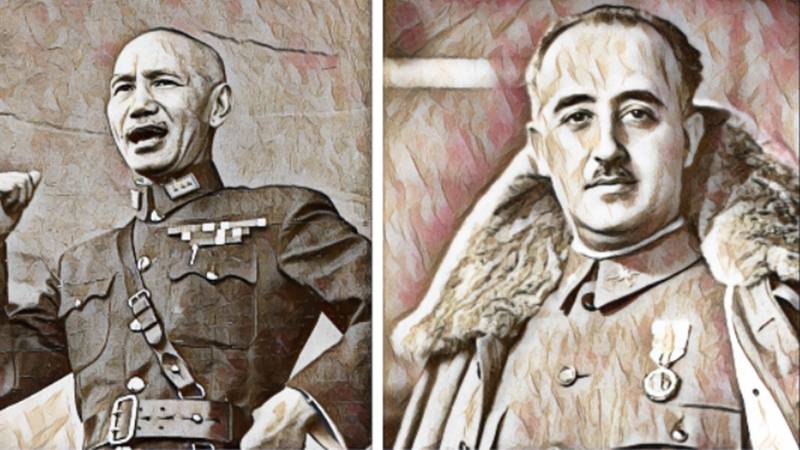
World history is littered with innumerable memories of brutal dictators who inflicted untold miseries and cruelties on the very people they were supposed to represent. They built monuments to self-glory and left behind a repressive past with painful memories for their people. Various societies deal differently with the past but all agree that people and the country matter more than any ruler. And now, more and more countries are facing reality and bringing their past under the gaze of a scanner of history.
The most recent example of a brutal megalomaniac dictator was Raza Shah Pahlavi who ruled Iran from 16 September 1941 to 11 February 1979 –a long innings where for 38 years he ruled the country like his personal fiefdom or like a family owned company. His children and siblings looted and plundered the national wealth to their hearts’ content. His son-in-law Ardershir Zahedi was the favourite ambassador to the USA and then the powerful foreign minister. His twin sister Ashraf Pahlavi was the power behind the throne and extracted her share from the economic pie of an oil-rich Iran. Ironically, Raza Shah Pahlavi and his brood were not from any lineage of royalty but became royals when his father, a military officer, seized control of the country and crowned himself the king of Iran. Raza Shah Pahlavi had the audacity to celebrate the 2,500th anniversary of monarchy in 1971 and called himself Shahanshah or the king of kings. Today Iranian history records Raza Shah as a cruel despot, and after his inglorious end in 1979, all the monuments elected by him have been razed to the ground. The loot and plunder of national wealth the horrible cruelties inflicted by the state intelligence agency SAVAK, the repression of basic civil rights and the denial of the freedom of press are still remembered today. The Shah’s rule is a good example of how the rule of a despot can finally result in a revolution and completely overturn the established order by the will of the people.
Today, the ruling party of Taiwan, the Democratic Progressive Party (DPP), is busy eradicating all traces of the rule of Chiang Kai Shek
Chiang Kai Shek, the leader of the Guomindang or Nationalist Party (KMT), lost the bitter civil war to Mao Zedong of the Communist Party in 1948 and managed to flee to Taiwan with his followers. He established a rump Chinese government on the tiny Island of Taiwan and immediately got recognition by the USA and the European powers as the legitimate ruler of China with a membership of the UN and a seat as a permanent member of the Security Council. He managed to rule Taiwan from 1949 until his death in 1975. He had dreams of conquering mainland China and ruled with an iron fist through his political party called the Kuomintang (KMT).
Today, the ruling party of Taiwan, the Democratic Progressive Party (DPP), is busy eradicating all traces of the rule of Chiang Kai Shek. Almost all his innumerable statues placed all over the country have been pulled down. The powerful KMT lost its influence after Chiang, and today the ruling party is keen to erase all memories of KMT rule.
Chile paid a price in the early 1970s, beginning with the election of the socialist Salvador Allende as President. In the three years in which Allende’s government tried to assert itself in the country, it came up against an ever-widening conspiracy involving the CIA and the Nixon administration, aimed at engineering its ouster. The US project engineered by the CIA came to fruition when the Chilean military under General Pinochet was successful in carrying out a military coup, resulting in the death of Allende in 1973 and after that for over 17 years Chile was under the military boots of the dictator Pinochet, who left office in 1990.
The supporters of Generalissimo Francisco Franco in Spain are still in awe of their brutal dictator and remember Franco as the hero and saviour of Spain. And even as they sing his praises, the Madrid authorities keep discovering the remains of his victims, the thousands of men and women his forces murdered during the civil war of the 1930s and later.
In Indonesia, during the reign of General Suharto between 1965-67, about two million people were killed by the military regime. Suharto took power by ousting President Sukarno and imprisoning Foreign Minister Subandrio for over thirty years. Suharto left power in 1998 and many governments after him have failed to investigate the brutal rule of the dictator Suharto.
Libya continues to suffer the aftereffects of the 42-year rule of the dictator Gaddafi and Iraq still groans under the yoke of the effects of Saddam Hussein dictatorship.
The sinister legacies of authoritarian rule are in reality haunted houses, with ancient ghosts inhabiting them in macabre fashion. These haunted houses have to be cleansed of the ghosts, before life can flow in and nations long suppressed can thrive without hindrance.

